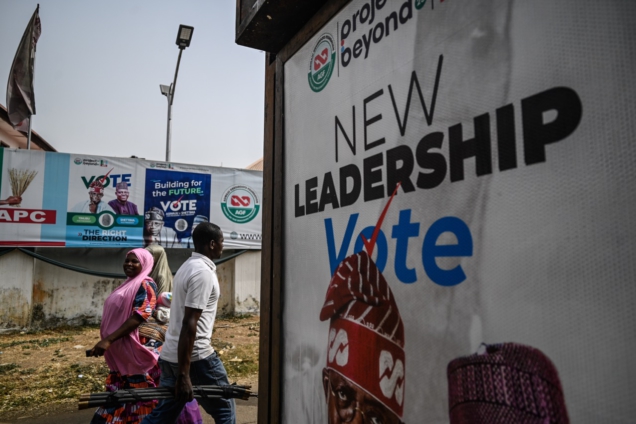Executive Director of the West African Network for Peacebuilding (WANEP), Dr. Chukwuemeka Eze, says Nigeria’s Independent Electoral Commission (INEC) has failed to address the gaps in electoral management.
Nigeria went to the polls on February 25 to elect a new President and Vice President, as well as Members of the Senate and House of Representatives.
However, the process has been fraught with allegations of vote rigging and fraud with some political factions accusing the INEC of siding with the ruling All Progressive Congress’s Bola Tinubu.
According to Chukwuemeka Eze, the INEC had been clear and concise on the procedures and processes of the general election leading up to the exercise, however, have failed to keep up same momentum following the election.
Speaking on PM Express, he mentioned that the INEC’s failure to address the gaps undermines the predictability of the election process giving rise to more tensions in the country.
“One of the major causes of electoral violence in our sub-region is the inability of the electorates or the political parties to predict INEC’s processes. Electoral processes should be predictable and where there is a major gap, the electoral management body should immediately address that gap. That did not happen.
“And what I am saying, I have refused to make any reference to any iota of fraud being committed or attempted to be committed. My point is that at a point that leading up to the Election Day there has been consistency in the words and in the actions of the Independent Electoral Commission about the procedure and the processes of this election.
“If at any point in time you’re going to miss any of those processes, it is important that you have already had a contingency plan through which you address that gap. That has not happened,” he said.
He said the INEC was expected to show leadership during this election, which many have described as the tightest since 1999, but has failed to do so.
This, he says, has created space for electorates and political parties to puppeteer the INEC.
“I am saying that I am convinced that most of the political parties may even have already have hold of their results. But when you create this gap, you allow emotions, elections are filled with emotions. People do not – especially in this part of our world where elections also determines who gets what, when and how – easily accept defeat.
“So in order to address that inability of the people to accept defeat, what you do is that you do not create room for them to take over the management of the election. The electorates, the political parties have taken over from INEC and they’re now commanding INEC when to start, when to stop, when not to continue and so on and so forth, and allowing different types of interpretations both from international communities and even from elder state persons like former President Obasanjo.
“So I see that as a huge gap within the INEC processes. And I’m saying that they did not come early enough to address the people about this gap,” he said.
Latest Stories
-
Haiti’s PM Ariel Henry resigns as transitional council is sworn in
19 mins -
Unforgettable stories from Primary School English text books
19 mins -
Jodie Comer to star in 28 Days Later sequel
28 mins -
CAFCC: GH₵36k for Baba Yara Stadium usage was for GFA, not Dreams FC – NSA clarifies
34 mins -
‘Lost’ Gustav Klimt painting sells for €30m
34 mins -
CAFCC: Zamalek arrive in Kumasi ahead of second leg against Dreams FC
39 mins -
Megan Thee Stallion: Cameraman accuses rapper of ‘hostile’ workplace
39 mins -
I would rather invest GH₵50,000 in my soul than go for body enhancement – Celestine Donkor
52 mins -
Four interdicted headteachers transferred after GES probe
1 hour -
Plastic Pollution: UN leads negotiations for international legally binding instrument to regulate usage
1 hour -
UKGCC to tour Golden Exotics on May 2, 2024 as part of World Press Freedom Day
1 hour -
NIC leads insurance firms to donate blood as part of 2023 Blood Donation Campaign
2 hours -
EC sets May 7 to 27 for voters’ register update
2 hours -
Lekzy Decomic, Clemento Suarez, OB Amponsah, others honoured at Ghana Comedy Awards
2 hours -
Harvey Weinstein’s 2020 rape conviction overturned
2 hours

